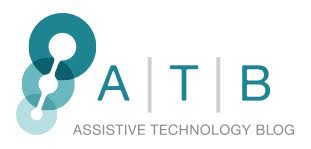Empowering Change: Unveiling the Untapped Potential of Disability Innovation and Inclusive Design
The global population includes approximately 1.3 billion people with disabilities, and despite a growing variety of assistive technologies, access remains limited for most of them. The disability innovation sector, though enriched with entrepreneurial ventures and support organizations like accelerators and incubators, suffers from fragmentation and a lack of funding. The Moonshot Disability Accelerator Initiative, announced at the 2022 Clinton Global Initiative, aims to address these challenges. It plans to support 10 accelerators in eight countries, focusing on tech startups for people with disabilities, to prepare them for investment and strengthen the overall ecosystem. A key report, “Disability Innovation: Empowering the Entrepreneurs Reimagining Inclusion Around the World,” highlights the current state of this ecosystem.
The initiative, driven by SmartJob’s founder Regina Kline and managed by New Venture Fund, seeks to bolster leaders worldwide in inclusive and universal design, fostering radically inclusive technology. It has launched a fundraising campaign, though the target amount is undisclosed. The initiative’s potential impact is significant, considering the lucrative market for products designed for people with disabilities, which often also appeal to the broader market. Innovations like the typewriter and electric toothbrush, originally developed for the disability community, exemplify this potential. The report identifies a $1.9 trillion GDP gap due to unmet needs in this sector.
One of the ten accelerators in the initiative, ATS Labs, exemplifies the collaborative and learning-focused approach of the program. Founded by Varun Chandak, ATS Labs shares insights and lessons with other accelerators, fostering a culture of transparency and mutual growth. The Moonshot Initiative emphasizes peer support and the use of tools like Village Capital’s ESO Diagnostic for tracking and measuring progress. The initiative’s report highlights the entrepreneurial spirit of people with disabilities, the need for a mindset shift in funding the sector, systemic challenges like disparities in education and employment, and the crucial need for more investment and philanthropic capital to nurture the disability sector’s entrepreneurial ecosystem.
A Strong Case For Disability Innovation
The report “Disability Innovation: Empowering the Entrepreneurs Reimagining Inclusion Around the World” covers the following themes:
- Inclusive Design as an Engine of Innovation: The report emphasizes the transformative power of inclusive design in driving forward technological and social innovation. This theme explores how designing with and for people with disabilities leads to creative, universally beneficial solutions.
- Activating Agency of People with Disabilities: This theme focuses on empowering people with disabilities as both consumers and entrepreneurs. It highlights the importance of their autonomy and engagement in driving market trends and influencing product development.
- The Business Case for Disability Innovation: The report underscores the substantial market potential of disability innovation. It argues that businesses and investors can achieve significant social impact and financial returns by catering to the needs and preferences of people with disabilities.
The proposed solution is to support and invest in disability-focused entrepreneurial ventures and technologies, acknowledging the unmet needs and market potential in this sector. The initiative aims to bridge gaps in the ecosystem, promoting inclusive design and business models that address the needs and preferences of people with disabilities.
The call to action includes mobilizing capital and resources towards disability innovation, fostering ecosystem support for entrepreneurs, and encouraging a paradigm shift in how disability is approached in the business and innovation sectors. The report urges stakeholders to recognize the value of inclusivity and the untapped market potential in disability-focused innovations.
Source: Forbes


Leave a comment